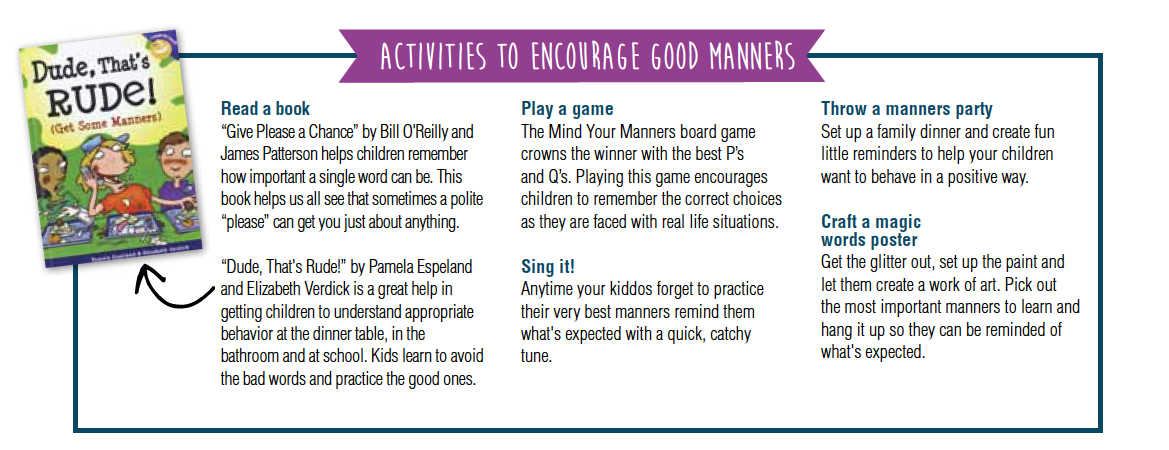Our children are a reflection of us, and the earlier they are taught the difference between what’s right and what’s wrong, the better. Teaching little ones manners can be tricky, and sometimes they just don’t understand that picking their nose and wiping it on their friend isn’t exactly considered polite. By
helping kiddos practice their P’s and Q’s as early as possible we not only speed up the learning process, but we also help them grow to be polite and respectful.
SueAnn Brown, founder of It’s All About Etiquette, said that it’s never too early to teach your children good manners.
“Start with being diligent, patient and give gentle reminders regularly. These are the keys to teaching your child good manners. Children mirror their parent’s behavior and I strongly believe that manners start at home,” said Brown. “At the age of 3 you can begin to teach your child things such as how to wash their hands before dining and how to put their napkin on their lap when sitting down at the table.”
Brown also said that it is important for parents to praise their child for showing good manners because it is a necessary reinforcement for them to understand what’s acceptable behavior is and what is not.
◗ Consistency is the key to getting kids to pick up on proper etiquette and stick with it. Keep in mind the following when enforcing good manners.
◗ You set the example and kids always take notice. Practice your best manners as often as possible because even when you think your children aren’t listening or watching, they are.
◗ The more you encourage them to be courteous, the more likely they are to catch on.
◗ Learning good manners doesn’t happen over night. Be patient and remember that teaching kids good manners and etiquette is a daily task.
◗ Learning to be polite is an admirable trait. Children who demonstrate politeness are at a social advantage compared to children who don’t possess the same good-mannered qualities
The Four Areas of Practice
The magic words:
- Please
- Thank you
- Sorry
- Excuse me
Appropriate dinner table behavior:
- Chew with your mouth closed
- Keep elbows off the table
- Use your napkin
- Don’t reach
- Ask to be excused
Playing nice:
- Be sure to share
- If you don’t have anything nice to say,
- don’t say anything at all
Act like a lady or gentlemen:
- Practice good behavior, and leave the gross stuff at home
- Don’t say bad words
- Knock first before entering
- Hold the door for others


